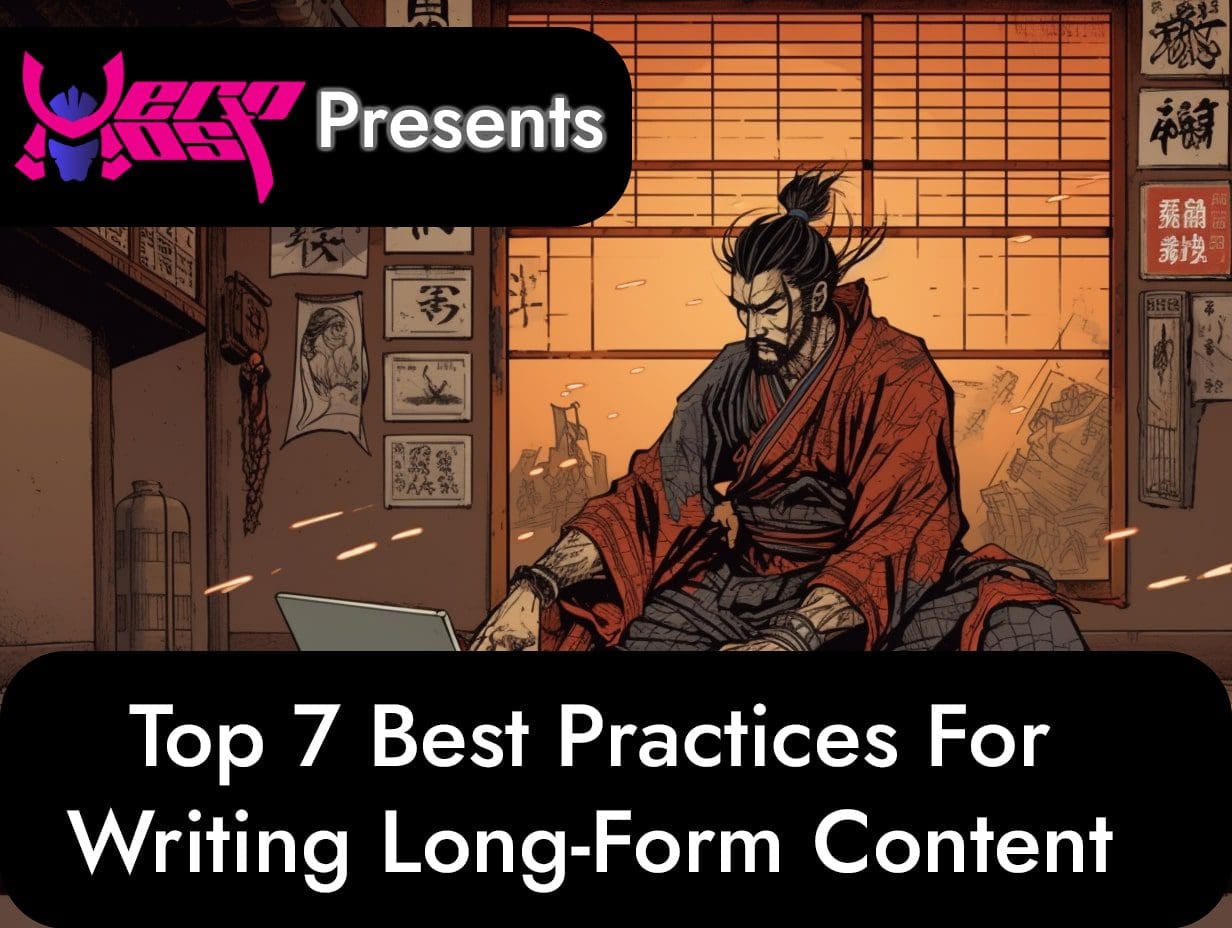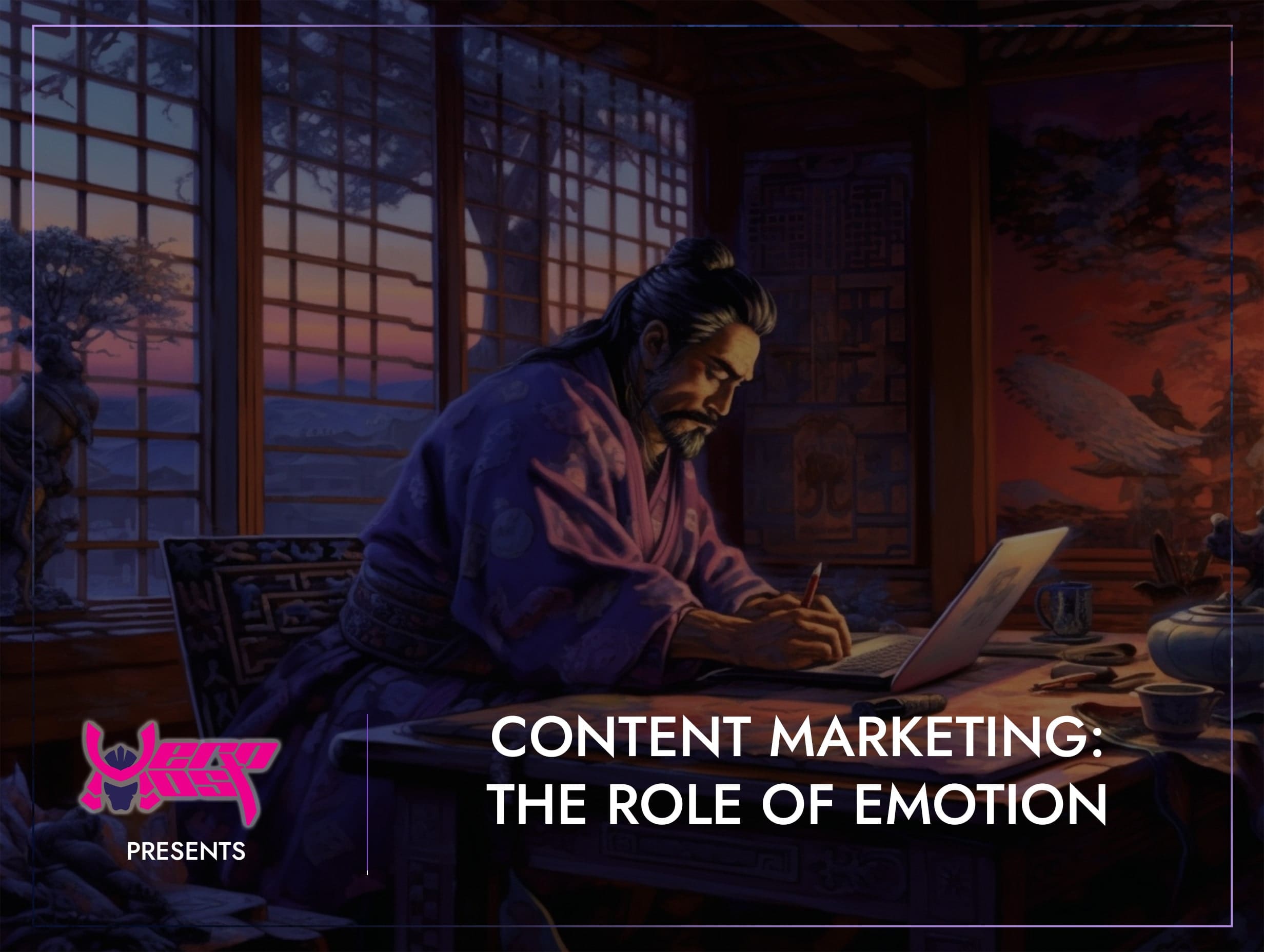Top 7 Best Practices For Writing Long-Form Content
- Home
- Content Marketing
- Top 7 Best Practices For Writing Long-Form Content

- Mikey Ryu
- October 18, 2023
- 0
Top 7 Best Practices For Writing Long-Form Content
Best Practices for Long-form Content
In the digital age, content is king. And when it comes to creating engaging, informative, and valuable content, long-form content often reigns supreme. Whether you’re a blogger, a content marketer, or a journalist, mastering the art of writing long-form content is a skill that can set you apart. To help you on this journey, we’ve compiled the top seven best practices for crafting long-form content that captivates and converts.
Know Your Audience:
Before you start writing, it’s essential to understand your target audience. What are their interests, problems, and needs? Tailor your long-form content to address these issues and provide solutions or insights that are relevant to your readers. This personalization makes your content more appealing and useful.
Plan and Outline:
Long-form content can be a complex undertaking. Start with a clear and comprehensive outline. Identify key sections, subtopics, and supporting information. This not only helps you organize your thoughts but also makes it easier for your readers to follow your narrative.
Craft a Strong Introduction:
The beginning of your long-form content is critical. Your introduction should grab the reader’s attention, provide context, and present a clear thesis or purpose for your piece. A compelling introduction sets the tone for the rest of your content.
Use Visual Elements:
Long-form content doesn’t have to be just text. Incorporate visuals, such as images, infographics, and videos, to break up the content and make it more engaging. Visual elements can help convey complex information and keep your audience interested.
Keep It Structured:
Maintain a clear and logical structure throughout your content. Use headers, subheadings, and bullet points to make it easy for readers to scan and find the information they need. A well-structured piece is more reader-friendly and helps convey your message effectively.
Provide Value and Depth:
Long-form content is an opportunity to dive deep into a topic. Offer valuable insights, expert opinions, research, and data that can’t be found in shorter pieces. Your readers should feel that they’ve gained in-depth knowledge or a unique perspective after reading your content.
Edit and Proofread:
Long-form content requires meticulous editing and proofreading. Typos, grammatical errors, and awkward sentences can detract from your message. Take the time to review and refine your content to ensure it’s error-free and flows smoothly.
Bonus Tip: Optimise for SEO:
Long-form content often performs well in search engine results, but it’s essential to optimize it for SEO. Conduct keyword research and incorporate relevant keywords naturally throughout your piece. Additionally, focus on creating high-quality, shareable content to boost your search engine rankings.
In conclusion, writing long-form content is a valuable skill in today’s content-driven world. By understanding your audience, planning and outlining your content, crafting a strong introduction, using visual elements, maintaining structure, providing in-depth value, and editing rigorously, you can create content that captures your reader’s attention and keeps them engaged.
Remember, the ultimate goal of long-form content is not just to convey information but also to provide a rewarding and informative reading experience. By following these best practices, you’ll be well on your way to becoming a master of long-form content creation, setting your content apart in a crowded digital landscape.
Search
Categorys
- Branding (12)
- Business Growth Guides (3)
- Business Insights (3)
- Content Marketing (43)
- Domain Authority (19)
- Email Marketing (28)
- Google Analytics & Search Console (5)
- Hack or Not (2)
- Hero Host News (0)
- Inbound Marketing (32)
- Lessons From Asia (40)
- Marketing Guides (11)
- Martial Arts Journey (14)
- Outbound Marketing (8)
- Search Engine Optimisation (SEO) (41)
- Social Media Marketing (38)
- Web Design (20)
- Website Hosting (4)
- Wordpress (2)






